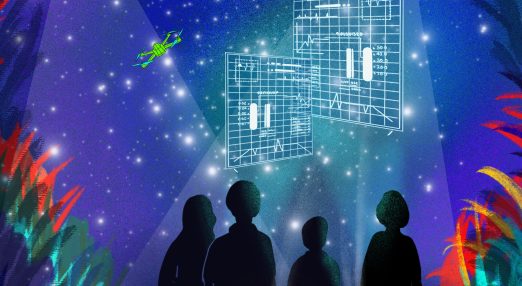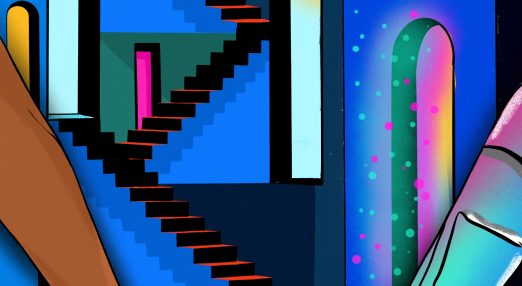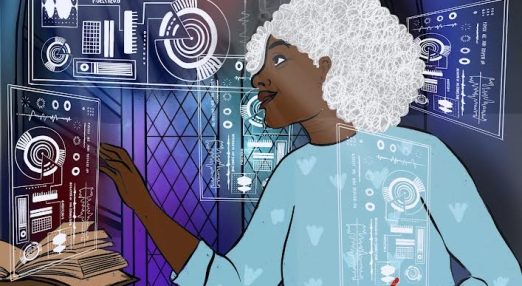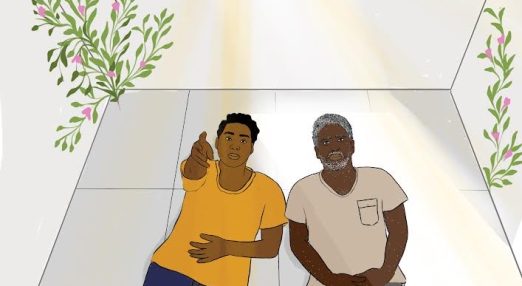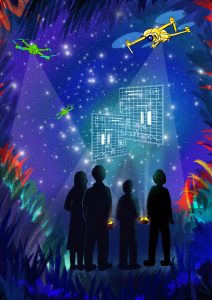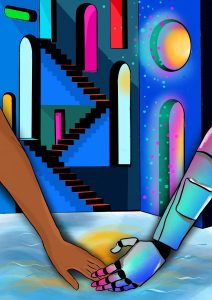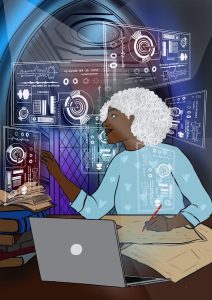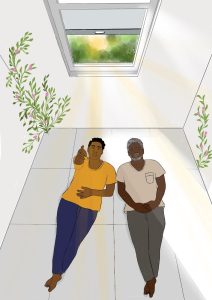The future is now
Reclaiming connections between people, the planet and technology
Why we need stories
Digital technology and the internet brought with it a promise of equal access to knowledge, openness and connection. Technology is ubiquitous and provides humanity with a unique opportunity for progress. However, the complete and ever-present digitalisation of our lives has made it easier to surveil, control, profile and profit from our attention, data, bodies and behaviours. Over the last 20 years, EDRi has worked for a world in which people live with dignity and vitality in the digital age.
It is difficult to draw an alternative vision for our future because the digital rights field is dominated by complex language, jargon and policy-focused dialogue, which acts as a barrier to understanding and relating to threats to our digital rights and freedoms. While marginalised groups bear the brunt of technological harm, a positive collective vision of a future in which the digital rights of all are protected has been at the centre of the decolonising the digital rights field process co-led by DFF and EDRi.
These four utopian fictional short stories illustrate some of the obstacles people face when engaging with technology, how people can be part of the solution; and what our collective futures could look like.
You can enjoy this exciting reading thanks to the valuable contributions of organisations and individuals, representing some of the communities most affected by technology. Check out who’s been involved in the project. We thank everyone who made this possible.
Stories that narrate a more inclusive open and fair future
The current Big Tech business model and oppressive state deployment of technology have been amplifying social, racial and environmental injustices, creating dangerous power imbalances that harm everyone, but especially marginalised groups whose voice is being silenced from the digital rights field. These stories help us reimagine and reinforce healthy alternatives to the current systems – a future in which people, the planet and technology connect to build a people-centred, democratic society. Together with broader systemic changes, and all of the vectors of change that EDRi mobilises, these stories can contribute to supporting real change. Read the stories to see what our future could look like.
Disclosure
By Bunny McFadden
“You tie our data together in little ribbons and put it out for sale, but you don’t realise that we are people. We may not be adults, but we’re still people. And we deserve privacy. Everyone deserves it.”
ATLR and the Great Reckoning
By Katie Brown
“I need to build it. This IT of a new world. It’s not enough for me to just connect […] And here we are, here I am, waiting for someone to notice, I mean really notice that the way I do things, the programmes I write are good, great even. Not great ‘considering what I am’. But just great, just because, that’s how it should be, could be. I want to make something that says “hey, you matter, you can be who you are and you can live how you want”.
Algorithm of grief
By Naro Alonzo
“Even after pouring through those different Life Lines of hers—from Lines where her children would upload dance videos to those meant to connect citizens with the elders or Counsels—nothing seemed particularly amiss. Her life seemed to brim and overflow with events, people, and colour. Ticking her first checkbox, she moved on to the next, which was to investigate and look at the advertisements found across her Life Lines.”
13 ways of looking at a CCTV
By Naro Alonzo
“Before handing back your freedom, the pre-recorded audio said, — worry, there are more CCTVs than salt. You started counting the world’s salt. After completing your life sentences, the only words you have left are numbers. It kept your mind busy while in the Veil. It anchored you especially through those painful time-fevers where the quiet seems to enter and pass through your body, as though you were transparent. It kept you from becoming completely invisible.”

